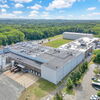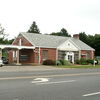Processing Your Payment
Please do not leave this page until complete. This can take a few moments.
-
News
-
Editions
-
- Lists
-
Viewpoints
-
HBJ Events
-
Event Info
- 2024 Economic Outlook Webinar Presented by: NBT Bank
- Best Places to Work in Connecticut 2024
- Top 25 Women In Business Awards 2024
- Connecticut's Family Business Awards 2024
- What's Your Story? A Small Business Giveaway 2024 Presented By: Torrington Savings Bank
- 40 Under Forty Awards 2024
- C-Suite and Lifetime Achievement Awards 2024
- Connecticut's Health Care Heroes Awards 2024
-
-
Business Calendar
-
Custom Content
- News
-
Editions
View Digital Editions
Biweekly Issues
- April 15, 2024
- April 1, 2024
- March 18, 2024
- March 4, 2024
- February 19, 2024
- February 5, 2024
- January 22, 2024
- January 8, 2024
- Dec. 11, 2023
- + More
Special Editions
- Lists
- Viewpoints
-
HBJ Events
Event Info
- View all Events
- 2024 Economic Outlook Webinar Presented by: NBT Bank
- Best Places to Work in Connecticut 2024
- Top 25 Women In Business Awards 2024
- Connecticut's Family Business Awards 2024
- What's Your Story? A Small Business Giveaway 2024 Presented By: Torrington Savings Bank
- 40 Under Forty Awards 2024
- C-Suite and Lifetime Achievement Awards 2024
- Connecticut's Health Care Heroes Awards 2024
Award Honorees
- Business Calendar
- Custom Content
Hopkins sees Post University playing key role in Waterbury’s urban revival efforts
 John Hopkins, CEO and President, Post University, Waterbury
John Hopkins, CEO and President, Post University, Waterbury
A college or university plays a key role in the economic atmosphere of its host city, and John Hopkins, president and CEO of Post University in Waterbury, is keenly aware of this.
Waterbury has much to offer — with attractions like the Brass Mill Center mall, Palace Theater and Mattatuck Museum. But it also has areas pockmarked by blight and empty storefronts.
Hopkins took the top job at Post in 2016, and he has been working with municipal and business leaders to make sure the university helps with driving urban revival. He has overseen expansion efforts, including when Post in 2018 took over the historic Howland-Hughes former department store building downtown. Post created a bustling online education hub in what had been a long-vacant building.
Post, which provides both on-campus and online learning, has expanded programming too. The school recently announced that students can major in gaming and esports management. Post also announced plans to acquire American Sentinel University, which is based in Denver and offers courses to those seeking to work in the healthcare field.
New Haven BIZ chatted recently with Hopkins about Post University’s future and what it means for Waterbury’s economic development.
How would you describe the current town-gown relationship with Waterbury?
The relationship between Post University and the city today is very healthy. I think there is a good public-private partnership between the two entities.
It crosses a lot of different aspects, social, civic and charitable. I work with the Mayor [Neil O’Leary] on economic development, and function as an ambassador for the city of Waterbury.
The mayor understands and appreciates the value of working with business leaders and private enterprise in partnership. Post has been here for 130 years. We hope we are here for another 130 years.
In order to be successful, we’ve got to have social and economic vibrancy. So we do what we can to ensure the city of Waterbury is firing on all cylinders.
How would you like the relationship to change?
I do think it needs to evolve. The world is a rapidly-changing place, and I think the partnership needs to reflect that. But I do think the partnership right now is working.
It is probably five years old, and the economic piece is a couple of years old. It is starting to produce some pretty good results.
In order for us to continue to attract students, and the workforce we need as we continue to grow, there has to be those amenities, those characteristics of a city that make it vibrant — where people can go out for dinner.
How can Post University help the Waterbury economy, and what are some initiatives you have toward that end?
Post has taken a very aggressive posture in partnering with the city. Two years ago, we took control of an iconic building, the Howland-Hughes building downtown. It’s a very prestigious building, which was an eyesore.
We took control of it, we redeveloped it. We run the online division of Post University out of that building today. We opened with 400 people working in that building. That grew to over 500. We anticipate that once we are through this pandemic, that should be well over 500, approaching 600 employees downtown.
One would think that when you put that number of associates downtown, that’s going to have some kind of impact. It has been the catalyst that has opened other businesses. We have seen so many restaurants open. We’ve seen nail salons, a men’s clothing store across the street, a dry cleaner — their business skyrocketed.
The first day Post University was downtown, I was delighted to hear that the Subway ran out of bread, and the Dunkin’ Donuts ran out of coffee. That’s a great thing. It is where we live, work and play, and we want to make certain Waterbury is a vibrant city.
How is Post supporting “The Waterbury,” the public-private venture working to stimulate interest in the city as a place to do business?
‘The Waterbury’ is an idea that started probably three years ago in the mayor’s office. There were a handful of business leaders, myself being one of them. The concept was, we needed to be proactive about attracting businesses to the city. And so over the last couple of years we have worked on a concept of proactively marketing the city. And it has actually generated fairly significant interest.
I continue to function as an ambassador for the city. So when people want to talk to someone who took the leap and invested millions of dollars downtown, I can tell people firsthand what it is like to work with city and state leaders. So that’s really my role — to function as an adviser and as an ambassador.
Why do you think other institutions like Yale University and Wesleyan University have been able to positively impact the New Haven and Middletown economies?
They recognize that they are located in urban settings. Over the years, some of those urban settings have had challenges, like they all do. You have to make a choice. You can pick up and leave, which doesn’t solve anything. Or, you can partner with these municipalities and make them really become vibrant centers.
Any university of any size is a very influential enterprise in those cities, just by sheer volume of people, whether it is students, or whether it is associates. We are one of the largest employers in the area. We have been here 130 years, we aren’t going anywhere. We look at it as our obligation to make certain that our home is as vibrant as we can make it for our associates and our students.
I ran Omni Hotels & Resorts for a number of years. Back in the 90s, it was Yale University that reached out to me because they wanted to redevelop a block in downtown New Haven, and they needed an upscale hotel. That is not just in the interest of Omni, it is in the interest of the city and the long-term interest of Yale, because they understand the importance of economic and social vibrancy in that city.
So you have to partner with all the constituents, and that’s what we’ve been doing.
Post recently announced plans to acquire American Sentinel University in Denver. Why?
We are always taking a look at our programs to make certain that the content is the most current and dynamic available.
We recently announced Post merging with American Sentinel University, which is a very highly regarded institution that focuses on nursing and health sciences. We have always wanted a nursing and health sciences college within the Post umbrella. That merger should be closed by late March.
Now we have a great foundation for offering nursing and health sciences programs. We will continue to expand programs and build them. We are constantly assessing the needs of the marketplace. It is a never-ending process.
Is this why Post recently debuted gaming and esports degree programs?
Gaming and esports has turned into a big business. The financial might behind that enterprise is astounding. The marketplace ... is huge. We are offering a degree that helps people understand how to manage institutions within this sector. Gaming is a huge sector that we thought would be a good vertical for us.

2022 Giving Guide
This special edition informs and connects businesses with nonprofit organizations that are aligned with what they care about. Each nonprofit profile provides a crisp snapshot of the organization’s mission, goals, area of service, giving and volunteer opportunities and board leadership.
Learn more
Subscribe
Hartford Business Journal provides the top coverage of news, trends, data, politics and personalities of the area’s business community. Get the news and information you need from the award-winning writers at HBJ. Don’t miss out - subscribe today.
Subscribe
2024 Book of Lists
Delivering Vital Marketplace Content and Context to Senior Decision Makers Throughout Greater Hartford and the State ... All Year Long!
Read Here-
2022 Giving Guide
This special edition informs and connects businesses with nonprofit organizations that are aligned with what they care about. Each nonprofit profile provides a crisp snapshot of the organization’s mission, goals, area of service, giving and volunteer opportunities and board leadership.
-
Subscribe
Hartford Business Journal provides the top coverage of news, trends, data, politics and personalities of the area’s business community. Get the news and information you need from the award-winning writers at HBJ. Don’t miss out - subscribe today.
-
2024 Book of Lists
Delivering Vital Marketplace Content and Context to Senior Decision Makers Throughout Greater Hartford and the State ... All Year Long!
ABOUT
ADVERTISE
NEW ENGLAND BUSINESS MEDIA SITES
No articles left
Get access now
In order to use this feature, we need some information from you. You can also login or register for a free account.
By clicking submit you are agreeing to our cookie usage and Privacy Policy
Already have an account? Login
Already have an account? Login
Want to create an account? Register
Get access now
In order to use this feature, we need some information from you. You can also login or register for a free account.
By clicking submit you are agreeing to our cookie usage and Privacy Policy
Already have an account? Login
Already have an account? Login
Want to create an account? Register






0 Comments